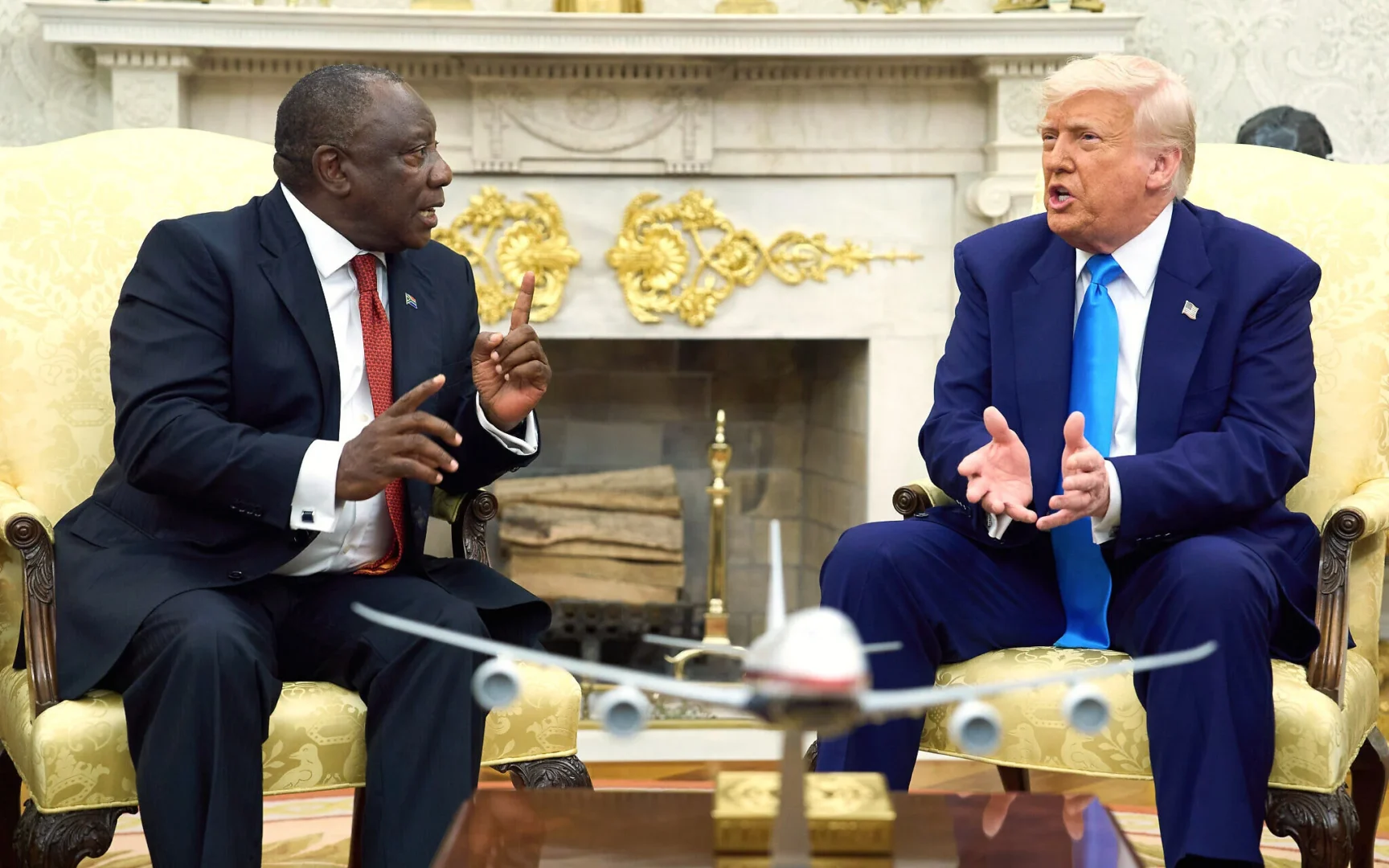CAPE TOWN, South Africa — A historical slogan, “Kill the Boer, kill the farmer,” which U.S. President Donald Trump cited to support allegations of white genocide in South Africa, is an apartheid-era chant that, according to South African President Cyril Ramaphosa, was not intended as a call for violence against farmers.
During recent discussions with President Ramaphosa, President Trump presented video clips of opposition figure Julius Malema chanting the controversial phrase. Trump also questioned why Malema, whom he incorrectly identified as a government official, had not been apprehended.
President Ramaphosa clarified that the South African government adheres to court rulings that interpret the slogan within the historical context of the liberation struggle against apartheid.
“It’s not meant to be a message that elicits or calls upon anyone to be killed,” Ramaphosa stated. “We are a country where freedom of expression is in the bedrock of our constitutional arrangements,” he added, dismissing the suggestion of Malema’s arrest.
The continued use of the chant by Malema post-apartheid has generated significant controversy in South Africa, with some groups seeking its prohibition as hate speech.
The video presented at the White House also featured Malema, leader of the Economic Freedom Fighters (EFF), asserting, “We are going to occupy land, we require no permission.” This statement has reinforced Trump’s claims that a revised land expropriation act will enable the government to seize land owned by white farmers.
While the revised law includes a “nil compensation” clause, the South African government maintains that this provision would only apply in exceptional cases, following attempts to reach a “just and equitable” resolution. President Ramaphosa emphasized that the revised law integrates the judiciary into expropriation decisions.
He further explained that scenarios involving expropriation without compensation could include instances where property owners are untraceable, heavily indebted, or when the property is required for public interest.
The Democratic Alliance, a major party within the government of national unity, has initiated legal action to challenge the “nil compensation” provision, expressing concerns about potential abuse.

